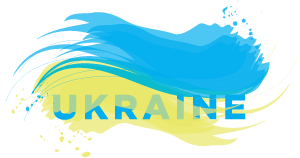Tatyana (40) is now staying in Latvia, but she used to live in a village around 100 km from the Russian border with her husband and two kids, 10- and 16-year-old boys. Her husband was at work in nearby Kharkiv when the Russian invasion started. He was working a night shift at a publishing house located close to Kharkiv airport, one of the first targets for the bombing. He quickly returned home, afraid that the village would be cut off from the city. Afterwards, they stayed at their home for many months, until 6 June.
The Russians enter the village
From 28 February, they lost the heating, electricity and water supply for their apartment. All they had left was access to gas. On 5 March, the Russian military forces entered the village, though luckily, Tatyana remembers, they didn’t commit any violent acts towards the civilians.
Tatyana
We are not spending a penny on Russian products. Any pennies spend on Russian goods are bombs falling on our heads.
Tatyana would get up at 5 in the morning to check if it was raining, so she could collect water for them to use. But despite living in such severe conditions, she and her family didn’t have any thoughts of leaving. They wanted to stay in their home. But, she explains, “Ukrainian products started disappearing from the shops. It was only possible to buy Russian food and products”. And as she told her kids, “we are not spending a penny on Russian products. Any pennies spend on Russian goods are bombs falling on our heads.”
A 4.000 km drive
The last drop that convinced the family to leave was when 25 bombs fell in the area in one single day. Cars were being targeted and destroyed, so they knew that if they wanted to leave, they had to do it quickly. Tatyana explains that the family had to first get to Kharkiv to pick up her husband’s kid from a former marriage. But the Russian military forces were not letting people pass to Ukrainian territories. So instead of traveling the 10 km between their village and the city, they had to drive 4.000 km, passing in a large circle through Russia.
It was an emotionally very challenging trip. Tatyana and her family had to cross the border to the Russian federation where her husband was interrogated. The guards had found a photo on Tatyana’s phone of a Ukrainian female soldier, standing by a city sign for Kharkiv, defending her town.
Maybe by God’s will
They showed the photo to her husband: “How do you think, we can let you go now?” In reply, Tatyana’s husband asked, “But how would you feel and how would you react, if one day you woke up in your home, and you realized that your city was being bombed and your kids and your family were in danger?” Maybe because of her husband’s diplomatic skills and respectful tone – or maybe by God’s will – the guards allowed Tatyana and her family to pass.
Voices of the future
Portraits & stories by Martin Thaulow
Translations Ukrainian Katerina Chalenko
Stories in English Amalie Pi Sørensen
Підтримайте нашу роботу







